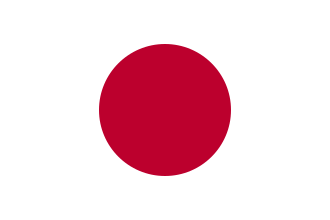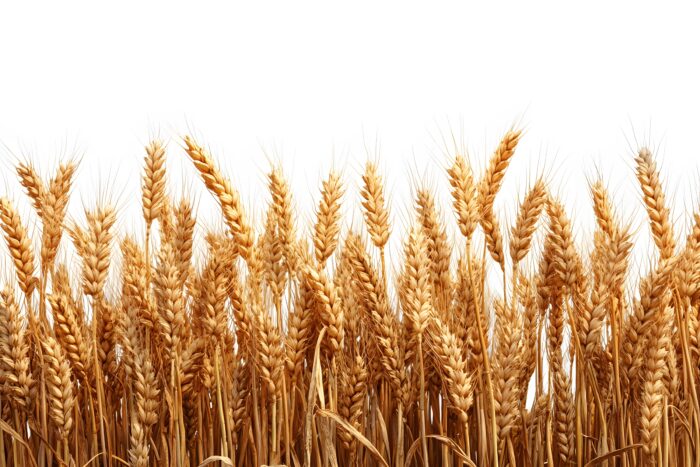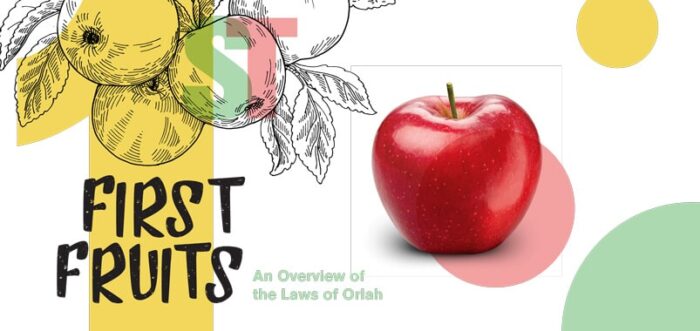HERE’S A RIDDLE. When can the same loaf of bread be allowed and prohibited depending on the day (and, no, it is not on fast days and Pesach)?
Chazal, in an effort to minimize interaction with Gentiles in a way that could lead to illicit relationships and intermarriage, instituted a ban on all pas akum (bread baked by a Gentile).1 Bread is chayei nefesh (a life-giving food) and the most basic staple of sustenance, so this ban was not accepted in many locations by necessity. As a result, it was later redefined and the scope of the decree was limited.
Bread baked by a palter, a Gentile commercial baker, with intent to be sold to customers, was reluctantly permitted in some locations as, naturally, there was less of a risk that the interaction would lead to prohibited relationships,2 and within this exemption there is also a difference of opinion. The Shulchan Oruch rules that pas palter is allowed only in locations where pas Yisroel is unavailable. The Rema says that pas palter is allowed even where pas Yisroel is easily obtained. The Shach and other poskim strongly recommend following the opinion of the Shulchan Oruch. Some communities, based partially on the opinion of the Arizal, are stringent even beyond the requirement of the Shulchan Oruch and do not consume pas palter even when pas Yisroel is not readily available. A large percentage of kosher consumers do rely on the leniency of pas palter year-round. Of course, this applies only when the pas palter is kosher certified.
Separately, but for the same reasons as the ban on pas akum, Chazal also banned any non-bread foods cooked, baked, or fried, by a Gentile if the food is inedible raw and is fit to be served at a formal dinner.3 This decree against bishul akum was universally accepted and according to the overwhelming majority of poskim, there is no exemption for bishul palter (foods cooked for commercial sale).
BREAD DURING THE ASERES YEMEI TESHUVAH
According to the Shulchan Oruch4, everyone should follow the stringency of pas Yisroel during the Aseres Yemei Teshuvah. This Halacha is based on a Gemara Yerushalmi5 that says, “Reb Chiya said to Rav, if you can eat ordinary food in purity [ 6חולין בטהרה ] all year long, eat. And if not, eat [in purity] seven days of the year.” The mefarshim explain that this refers to the Aseres Yemei Teshuvah.
Wait…aren’t there 10 days in the Aseres Yemei Teshuvah? Well, yes, but we don’t really have ten days to make this Halacha relevant. The Tur explains that Yom Kippur is a fast day and on the two days of Rosh Hashanah everyone is in a purified state anyway because there is a chiyuv to immerse in the mikvah in honor of Yom Tov. Others say that Rosh Hashanah7 and Shabbos are not included in the number of days, because the custom is to bake challahs at home in honor of those days and, presumably, Rav’s home was pure. Rav Chiya’s advice was meant for days when it is customary to buy bread commercially.
What about Tzom Gedaliah? Good point; some make the seven-day calculation by excluding Tzom Gedaliah and Yom Kippur as two fast days, in addition to Shabbos where challahs are baked at home. According to this opinion, for Rosh Hashanah there is no custom to bake at home or an obligation to immerse in the mikvah.
Regardless of the specific calculations, it is obvious from this Yerushalmi that during the Aseres Yemei Teshuvah we are supposed to elevate our spirituality and purify ourselves to achieve a higher level of avodas Hashem than year-round. Another reason given for the stringency of pas Yisroel during this time is that since these are the days when we beseech Hashem to judge us favorably and “look away” from our transgressions (misnaheg b’chassidus), we show Hashem that we are also willing to go above and beyond the letter of the law in order to merit His favor.
Some say that during the Aseres Yemei Teshuvah, when all Jews aspire to reach higher levels of yiras Shomayim and piety, we should all consider ourselves in the category of an adam chashuv (important person). There are many examples in Shulchan Oruch, and particularly in the Halachos of pas and bishul akum, where it is suggested that an adam chashuv should be stringent upon himself even in instances where it is not necessary according to the letter of the law.
It is understood from poskim that the custom of eating only pas Yisroel during the Aseres Yemei Teshuvah, although not an absolute requirement, it is a highly recommended one that everyone should try to accept, and, indeed, the general custom is to be stringent.
It is said in the name of Rav Moshe Feinstein that breads made in factories with equipment not typical of a regular household and sold packaged with no direct contact between the manufacturer and the consumer are even less than the category of palter. This opinion may sometimes be considered as a mitigating factor year-round, but the custom is not to rely on this leniency during the Aseres Yemei Teshuvah.
Have you already guessed the answer to our riddle?
PAS YISROEL ON THE ROAD
So, what should you do if you’re on a trip and would like to eat some bread, but no pas Yisroel is available? The Halacha states that even those who are stringent year-round about keeping pas Yisroel, if the nearest availability of pas Yisroel is more than 72 minutes away in the direction you are heading, or more than 18 minutes travel time backwards, there is no need to wait until you can find pas Yisroel.8 The stringency during the Aseres Yemei Teshuvah is not on a higher level than year-round, so the same conditions apply. Similarly, just as year-round, it is enough to have a Jew throw even a small splinter of wood into the oven before or during the baking to render a product pas Yisroel; the same leniency applies to bread baked during Aseres Yemei Teshuvah9. This is the basis on which many kashrus organizations set up heating elements controlled by a mashgiach to make the baked goods pas Yisroel.
THE DIFFERENCE BETWEEN PAS AND BISHUL
As explained above, there are differences in Halacha between the decrees of bishul akum and pas akum. While pas akum is subject to various, widely accepted, leniencies, bishul akum is not. It is, therefore, very important to define pas in the context of this decree to determine what falls into that category.
The general consensus is that the definition of pas is bread and any other pastries (even those made from a liquid batter, like cake) that we make hamotzi on if we eat enough of it to constitute a meal. Although only regular bread is considered chayei nefesh, nevertheless, we include all potential hamotzi baked goods, even when sweetened or enhanced with other ingredients, in the leniency of pas palter. This also means that all of these baked goods are included in the hiddur to refrain from them during the Aseres Yemei Teshuvah.
Breakfast cereals made out of any of the five grains (wheat, oats, spelt, barley and rye) are a subject of dispute among contemporary poskim about whether they qualify as pas that is potentially hamotzi. Cereals are first cooked and shaped, then dried, and sometimes toasted. It is questionable whether that is considered baked at all, and whether it fits the category of bread-like. OK policy does not regard cereals as pas. However, in the context of the Aseres Yemei Teshuvah, there is a reason to be stringent and include them in the customary minhag, especially considering that some opinions hold that breakfast cereals that are not pas are included in the prohibition of bishul akum and in the category of oleh al shulchan melachim.
If you see someone about to eat pas palter and you know that this person would refrain from eating it if he knew, do you have an obligation to make him/her aware? Some authorities rule that it is not necessary, based on a novel thought. The reason for the ban is because it creates a connection with the Gentile. By virtue of the fact that this person thinks that he is eating pas Yisroel, there is no concern of a relationship with a Gentile. Most poskim, however, do not accept this ruling and suggest that there is an obligation to step in and notify.
THE USE OF BREAD CRUMBS AND OTHER CRUSHED BAKED GOODS IN COOKING
Pas that is crumbled or cooked and meets a list of criteria too detailed for this article, loses the status of pas and the brocha is always mezonos regardless of the amount that is eaten. There are some poskim who hold that these items are not subject to the prohibition of pas akum either. However, the consensus and accepted custom is that it remains subject to the decree against pas akum. But what if the Gentile, himself, subsequently processes the bread, that he produced, so that is loses its Halachic status of bread before the Jew receives it? Does that exempt it from the decree against pas akum? Of course, this is theoretically only if there are no questions of bishul akum and all ingredients and equipment is supervised. Proof that this would still be prohibited can be derived from the halacha of kutach (a mixture prepared by a non-Jew that includes dairy derivatives, salt, and small crumbs of bread that are not visible in the final product). The Shulchan Oruch says that it is not subject to the Halacha of pas akum only because the bread is batul b’rov. Poskim note that if the pieces of bread can be identified, batul b’rov cannot be applied and the kutach is prohibited even though the bread in the product meets the criteria and is not hamotzi according to all opinions.
CHANGING ONE’S MINHAG
Those who have the minhag to be stringent with pas Yisroel and elect to change their custom must do hataras nedarim (nullification of vows) if they did not accept the minhag upon themselves originally bli neder (without a vow). Similarly, those who are stringent during the Aseres Yemei Teshuvah and, for whatever reason, choose to discontinue the practice must do hataras nedarim.
We should note that according to what seems to be the accepted Halacha, hataras nedarim only applies in instances where the intention is to give up the minhag entirely. For a one time break with the custom due to a specific difficulty that is encountered in situations of duress, but the intention is to go back to observing the stringency, hataras nedarim is not required.
GOING ABOVE AND BEYOND
OK Kosher abides by the principal of elevating our work by infusing it with ruchniyus whenever possible. As such, a project inspired and encouraged by my friend and colleague, Rabbi Yitzchak Hanoka, encourages mashgichim to visit OK certified facilities producing pas products close to, or during, the Aseres Yemei Teshuvah to light the ovens so that there is a higher likelihood that any pas products produced at these facilities during the Aseres Yemei Teshuvah are pas Yisroel even if they are not certified as such.
Is it Pas?
PRETZELS although the subject of some debate, most opinions regard them as pas.
DOUGHNUTS are deep fried and not considered pas. Baked doughnuts are considered pas.
NOODLES are not baked and are not pas.
BAGELS real bagels are boiled before baking, but are not edible at that stage and, even if they would be, Rav Moshe Feinstein paskens10 that since they are subsequently baked they are in the category of pas.
LUKSHEN KUGEL is not “bread-like” and is not pas.
GRANOLA is not baked and not “bread-like” and is not pas.
1 Yoreh Deah 112:1.
2 112:2.
3 113:1.
4 Orach Chaim 603.
5 Shabbos 1:3.
6 The custom of eating even ordinary food within the strict laws of purity usually reserved for terumah and hekdesh.
7 The Magen Avraham says that in the times of Rav Chiya it was still possible to have only one day of Rosh Hashanah.
8 Yoreh Deah 112:2.
9 It is worth mentioning that the Darkei Teshuvah cites an opinion that requires adding three wood splinters during the Aseres Yemei Teshuvah to make the bread pas Yisroel!
10 Igros Moshe Y.D. 2:33.


 EN
EN  ZH
ZH  KR
KR  BR
BR  ES
ES  IN
IN  IL
IL  JP
JP 




